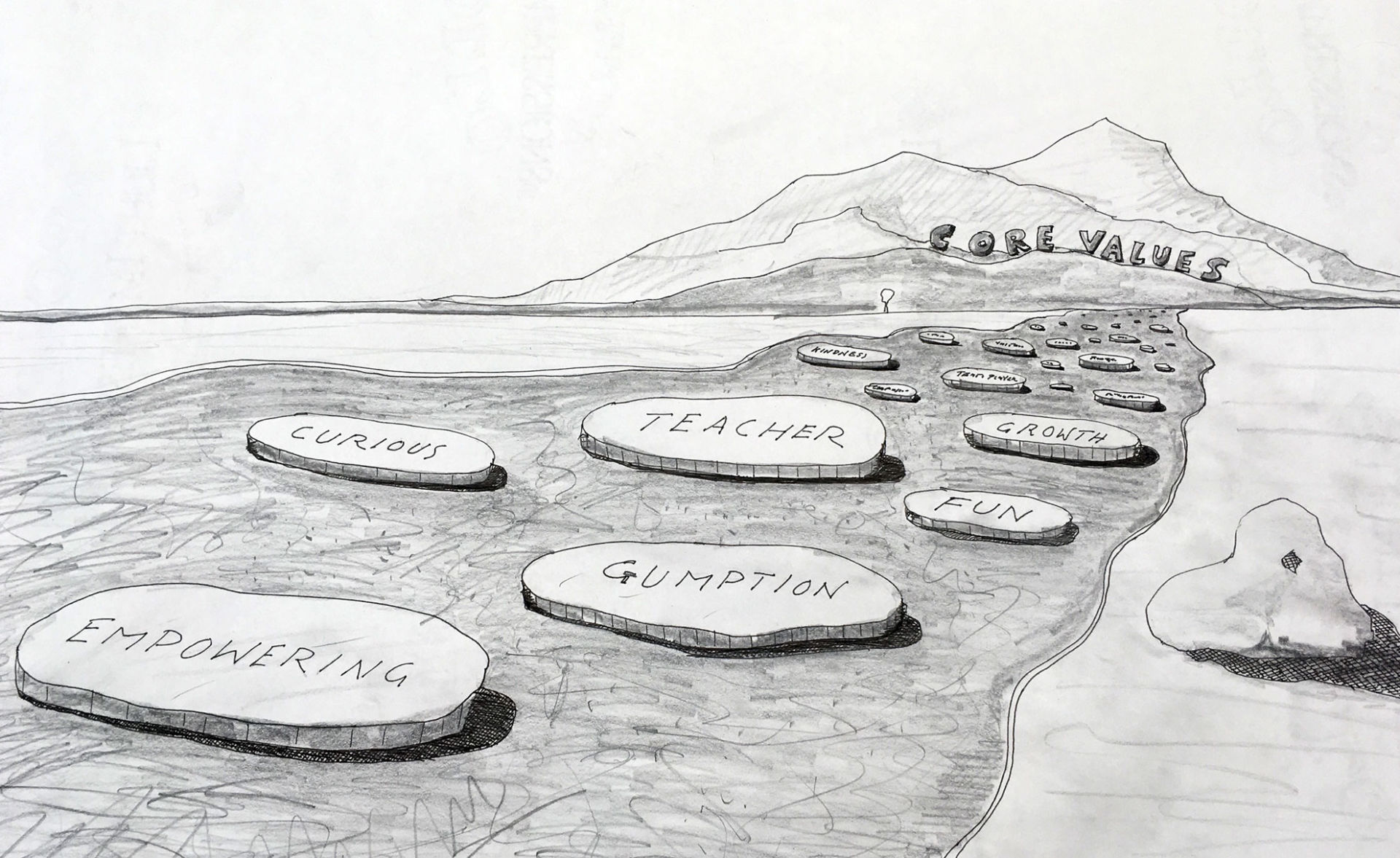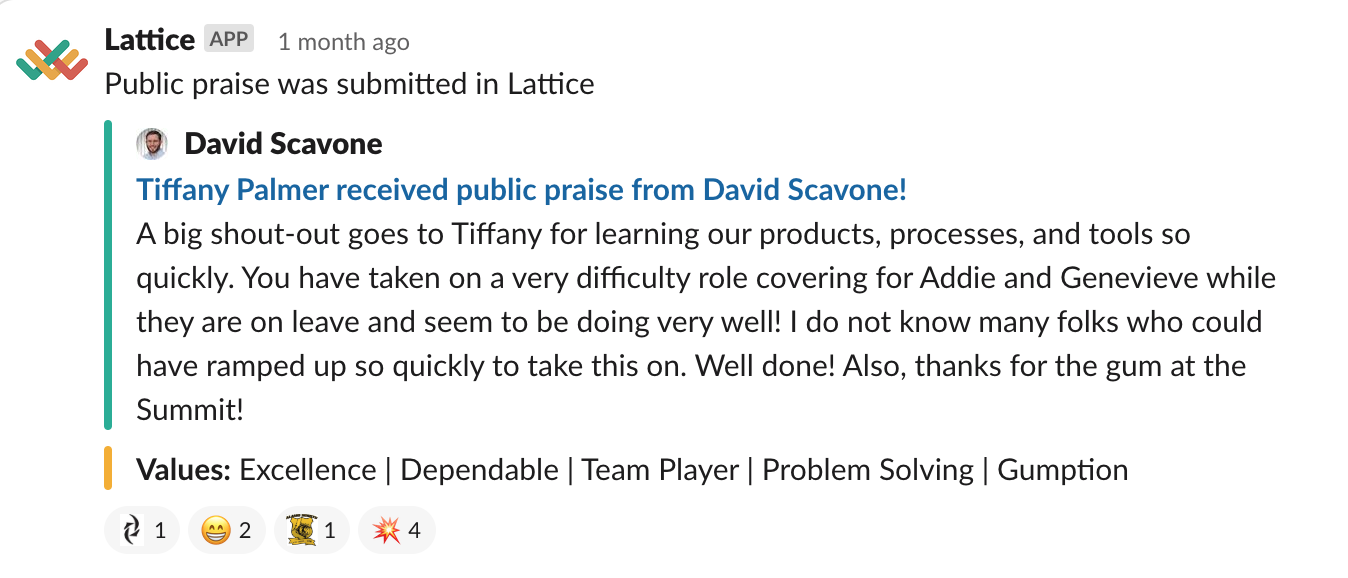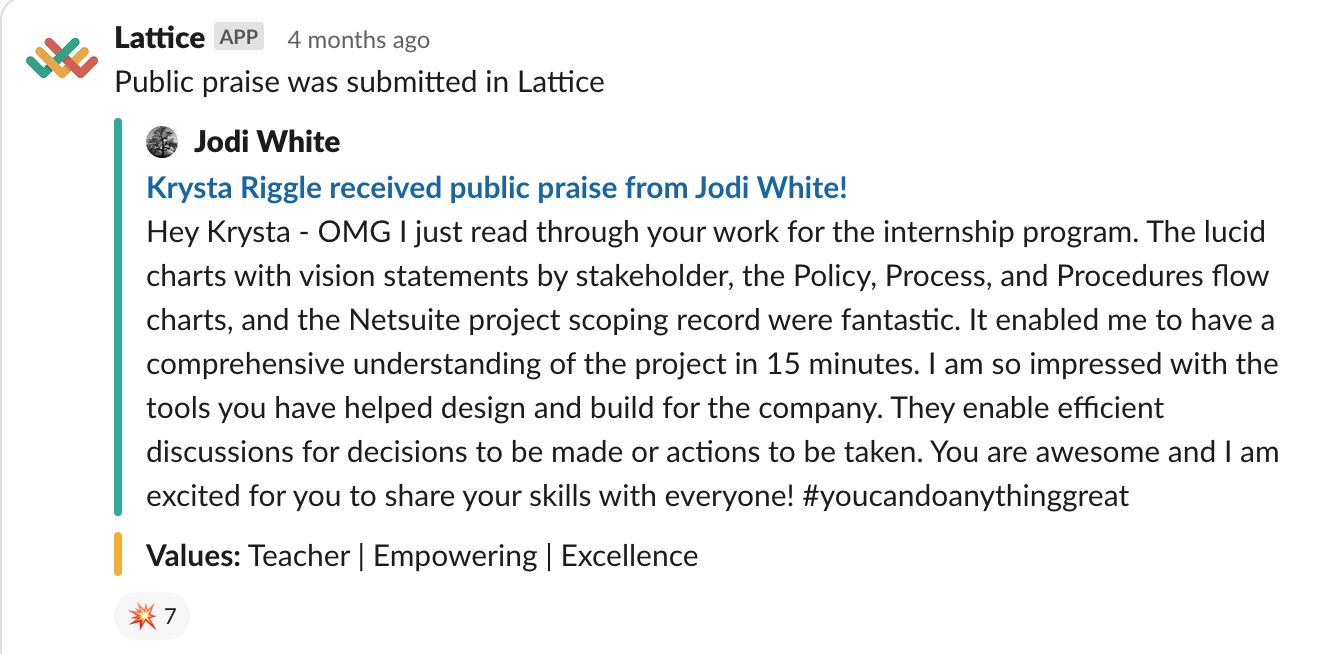
Illustration – Tom Miller
Identifying your company’s core values is a powerful step toward establishing an intentional and consistent organizational culture. However, core values can also be quite high-level—even inaccessible—and defining them is a major project. In companies just starting down a path of organizational development, it can take months to arrive at and define core values. Once defined, core values can also stagnate and fall out of use.
This is where attributes can play a pivotal part in making your core values accessible and attainable.
Attributes as stepping stones to core values
A well-thought-out set of values lets everyone in the company know how the company wants to behave in the world and supports informed decision-making for all stakeholders. Importantly, core values also create common language for the team, which is essential for culture to take root.
At BayWa r.e. Solar Systems, some of our core values are a little, well…deep. For example, “health,” our central core value, gets a whole presentation to itself during employee onboarding, covering internal, external, individual, and organizational aspects of health. It’s critical for us to live our core value of “health.” The most important aspect of discussing “health” or any other core value is helping employees understand the organization’s expectations of them.
If you have not yet defined core values and want a quick “shortcut” to start communicating more intentionally about culture OR if you have defined core values and are looking for a way to breathe more life into them, consider defining a set of “attributes” that describe the behaviors you expect and encourage from your team. Attributes don’t have the same heavy-handedness as core values; they can be more diverse and fun, using language that is less lofty and general than core values tend to be, making them easier for your team to engage. Having many people using the same words to mean the same things with some degree of frequency is what creates the common language necessary to shape an intentional culture.
Define your attributes
To define your company’s attributes, assign several team members who embody and lead the culture, even informally, to each write down ten or fifteen qualities they think a person needs to make your organizational culture stronger.
The company principals then combine these inputs into a list. Each proposed attribute gets evaluated through the lens of “is this a behavior I would encourage in any employee?” (meaning it is not role-specific) and “is this a behavior that describes who we want to be in the world?” Take time to define the attributes and ensure you know exactly what they mean. Similar attributes can be combined into one, but sometimes the subtle differences can be worth exploring. For example, BayWa r.e.’s attribute list includes “team player,” “collaborator” and “dependable” which seem like they could be used interchangeably but which we define in different ways.
The following example shows a list of attributes and their definitions, which BayWa r.e. Solar Systems uses to shape our culture.
Hustle: When priorities change or become urgent, you adjust quickly.
Gumption: You show initiative, resourcefulness, and bravery in approaching difficult, complex, or daunting issues.
Decision Making: You understand when decisions need to be made; you use decision-making tools, and methods; you make decisions clearly.
Open-mindedness: You challenge your own assumptions and recognize your biases and mental models; you are open to seeing things in new ways and to others’ points of view.
Problem Solving: You are methodical; you are creative; you are resourceful in approaching problems and challenges.
Team Player: You prioritize the success of the company.
Dependable: Others can depend on you for your consistent contributions to the team.
Growth: You are an engine of personal growth – both yours and others’; you are engaged in being the best version of yourself you can be; you help others be the best versions of themselves they can be.
Straight Talk: You are kind and direct; you tell people how they can improve in ways that they can hear and internalize; you take input well and turn it into fuel for your own growth.
Empowering: You create opportunities for others to take more responsibility and grow; you support the growth of others.
Fun: You enjoy challenges – working is fun for you, and your engagement is infectious. Working with you, even on difficult topics, is engaging for others as well.
Teacher: You help others understand things in new ways; you help others learn in ways that are most effective for them.
Collaborator: You work with others to achieve results; you find ways to share responsibility and decision-making; you make room for others and still contribute yourself.
Communicator: When you write or speak, you are understood, and sometimes others are even inspired. You help others who are not understanding one another to do so.
Partner: You balance the needs of our organization with our customers’ or vendors’ needs. Your actions set and fulfill clear expectations; you build trust.
Kindness: You show empathy and compassion for your colleagues, customers, and vendors. You are helpful and supportive.
Curious: you seek to learn and understand new ideas and perspectives that differ from your own; you are inquisitive; you search for new insight.
Excellence: You demand quality from yourself and others; the work you do increases the quality we can offer our customers.
Applying attributes
We use attributes in our formal (evaluations, 360-degree reviews) and less formal feedback, and in recruiting, hiring, and onboarding new employees. Using attributes at every stage of the employee journey creates continuity, continually reinforcing their importance.
In the hiring process, we have found several impactful applications for attributes:
- Initial phone screens focus on the essential attributes defined by the hiring manager and quickly elevate the most promising candidates.
- Interview questions are geared to illuminate the presence (or absence) of key attributes.
- Feedback to the hiring manager from the interviewers rates the candidates based on key attributes.
During onboarding, new employees are introduced to the attributes and their definitions and shown how and where they are used.
In the feedback-giving process (also an important part of BayWa r.e. culture) attributes come in handy as well. For informal feedback, a kudos channel in Slack (we call it #awesomesauce, see below) allows one team member to attach attributes when they give another team member public praise, reinforcing the behaviors that are critical to success. More formal feedback given privately as part of performance evaluations and peer reviews also refers to attributes, helping team members see in which areas of their behaviors they could seek improvement.


Attributes as culture
As your team becomes familiar with your company attributes, the values of the company are elevated and accessible. When we talk about “health” as a company core value at BayWa r.e.—as I mentioned earlier—we can now use our attributes (Kindness & Straight Talk, for example) to make the core value of “health” more tangible. These attributes are now part of our cultural language.
Whether you’re starting with attributes to help define your core values, or using them to reinforce and illustrate existing ones, they are a great tool to help you, and your leadership team, become more intentional about the behaviors you cultivate in your organization. Good luck!




